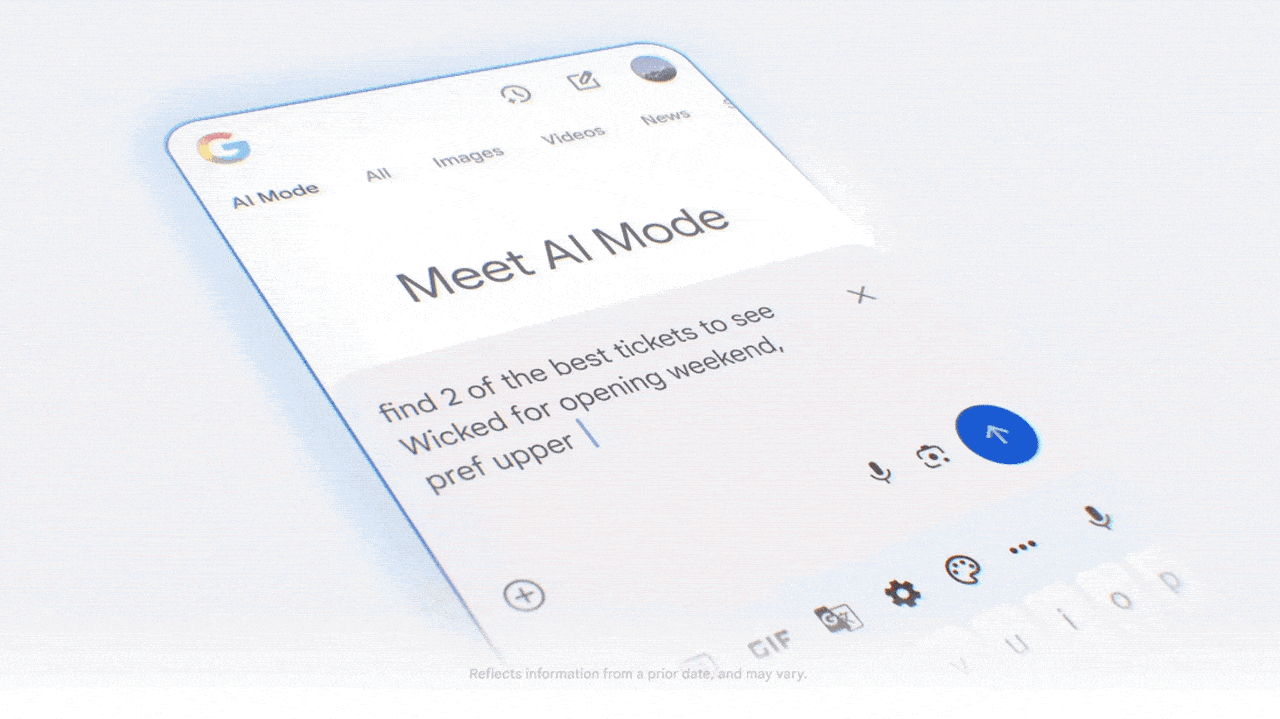Boost Your Sales with Emotional Intelligence Strategies for Success

Emotional intelligence in sales involves recognizing and managing your emotions and those of your clients. This skill is crucial for building strong relationships and enhancing communication. When you understand buyer emotions, you can address concerns effectively and resolve conflicts. It matters due to the fact that it can greatly influence client satisfaction and long-term loyalty. As you explore this topic further, consider how emotional intelligence can be a game-changer in your sales strategy.
Key Takeaways

- Emotional intelligence (EQ) enables sales professionals to build stronger client relationships through effective communication and empathy.
- High EQ is valued by senior leaders, often more than traditional intelligence, due to its impact on sales success.
- Recognizing and managing emotions enhances decision-making and conflict resolution in sales interactions.
- Incorporating EQ into sales strategies leads to improved client satisfaction and long-term business relationships.
- Developing an emotionally intelligent sales team fosters better client engagement and enhances overall sales performance.
Understanding Emotional Intelligence in Sales

Comprehending emotional intelligence in sales is vital for building strong relationships with clients and effectively meeting their needs.
Emotional intelligence for sales success involves recognizing and managing your emotions and those of your clients. This skill allows you to tailor your approach to align with buyers’ emotional states, enhancing their experience.
Research shows that over 85% of senior leaders believe emotional intelligence in sales is more impactful than traditional IQ, highlighting its significance in achieving sales performance.
High EQ correlates with better conflict resolution and decision-making, leading to greater client satisfaction.
The Importance of Emotional Intelligence in Sales

Even though many factors contribute to success in sales, the importance of emotional intelligence (EQ) can’t be overstated. High EQ enables you to understand and manage not just your emotions but also those of your clients, leading to improved communication and stronger relationships.
Here are three key reasons why EQ matters in sales:
- Enhanced Client Satisfaction: Sales professionals with high EQ create deeper connections, leading to increased loyalty and repeat business.
- Effective Consultative Selling: Prioritizing buyers’ emotional needs allows you to tailor your approach, supporting smoother shifts through the sales pipeline.
- Lower Burnout Rates: EQ helps manage stress and emotions, contributing to a more sustainable and fulfilling sales career.
Incorporating emotional intelligence into your sales strategy is crucial for long-term success.
Emotional Intelligence and Overcoming Objections

When managing objections in sales, leveraging emotional intelligence can greatly improve your effectiveness. Emotionally intelligent sales professionals view objections as opportunities for learning, which helps maintain a positive outlook.
By empathizing with your customers’ concerns, you can address their issues more effectively, building trust in the process. Strong self-regulation allows you to manage your emotions, enabling calm, professional responses rather than defensiveness.
Actively listening to your customers and recognizing their emotions can lead to customized responses that directly tackle the root of their objections. Furthermore, developing proactive plans to handle common objections can streamline your approach, increasing your success in closing deals.
Embrace these strategies to improve your objection-handling skills and drive better sales outcomes.
Handling Rejection With Emotional Intelligence

Handling rejection in sales can be challenging, but with high emotional intelligence (EQ), you can turn these experiences into valuable learning opportunities. Here are three strategies to help you handle rejection effectively:
- View rejection as feedback: Analyze the reasons behind the rejection, using it to refine your approach and improve future interactions. This mindset encourages continuous learning.
- Regulate your emotions: Practice self-control to manage impulsive reactions during challenging situations, allowing you to maintain composure and focus on your goals.
- Seek improvement: Engage in ongoing training or mentorship to develop your skills in handling objections and rejections. This proactive approach builds resilience and keeps your motivation high, enabling you to bounce back quickly from setbacks.
Building Rapport With Leads

How can you effectively build rapport with leads in the sales process? Start by leveraging your strong social skills to engage in meaningful discussions about their needs.
Ask open-ended questions, listen actively, and show genuine interest in their concerns. Use empathy to understand their pain points, which nurtures trust and connection.
Tailor your approach to resonate emotionally with each client, rather than relying on generic tactics. Self-awareness is key; adjust your communication style based on the signals you receive from prospects.
Professionalism Through Emotional Intelligence

To improve your professionalism in sales, it’s essential to enhance your engagement skills and build trustful relationships with clients.
By managing your emotions effectively, you can promote a calm and confident demeanor that encourages open communication.
This approach not just strengthens client connections but likewise creates a positive sales experience that can lead to increased loyalty.
Enhancing Engagement Skills
Emotional intelligence plays a crucial role in improving engagement skills, particularly in the area of professionalism during client interactions. By effectively managing your emotions, you project calmness and confidence, which greatly enhances your professional demeanor.
To improve your engagement skills through emotional intelligence, consider these key strategies:
- Develop Self-Regulation: Maintain composure in high-pressure situations, helping you respond thoughtfully rather than reactively.
- Practice Active Listening: Understand and respond to nonverbal cues, nurturing clearer communication and reducing misunderstandings during conversations.
- Utilize Empathy: Connect with clients by recognizing their feelings, which can help defuse tensions and build stronger rapport.
Building Trustful Relationships
Building trustful relationships in sales hinges on your ability to manage your emotions and understand those of your clients. When you demonstrate professionalism through emotional intelligence, you cultivate a calm and confident demeanor that improves trust.
Use strong social skills to build rapport, adapting your communication style to meet the emotional needs of your buyers. By exhibiting empathy, you identify and address customer pain points, allowing for a more personalized approach that resonates emotionally.
This not only strengthens client relationships but also contributes to increased customer loyalty and repeat business. Remember, clients prefer engaging with professionals who genuinely understand their needs, making emotional intelligence a vital tool in establishing lasting trustful relationships in sales.
Managing Emotions Effectively
Managing your emotions effectively during sales interactions is crucial for maintaining professionalism and ensuring positive client experiences. By practicing self-regulation, you can control negative emotions and prevent impulsive reactions in challenging situations.
High emotional intelligence allows you to project calmness and confidence, which builds trust with clients. Here are three strategies to improve your emotional management:
- Practice Self-Control: Reflect on your emotional triggers and develop coping strategies to maintain composure under pressure.
- Utilize Empathy: Recognize your clients’ feelings, and respond with awareness to defuse tense situations.
- Leverage Social Skills: Use humor or light-heartedness when appropriate to create a more engaging and positive atmosphere for your clients.
Implementing these techniques can improve your sales interactions and cultivate long-term relationships.
The Role of Delayed Gratification in Sales

In sales, prioritizing long-term relationship building over immediate closures can greatly improve your success rates. Delayed gratification allows you to focus on generating leads and nurturing prospects, rather than just closing sales. This approach cultivates trust and loyalty, leading to greater rewards in the future. Emotionally intelligent salespeople understand that consistent engagement today results in sustained motivation and resilience.
| Focus Area | Immediate Sales Closure | Long-Term Relationship Building |
|---|---|---|
| Customer Engagement | Minimal | High |
| Trust | Low | High |
| Resilience | Low | High |
| Motivation | Short-term | Long-term |
| Sales Pipeline Health | Inconsistent | Consistent |
Balancing immediate results with long-term strategies is essential for ongoing success.
Key Emotional Intelligence Skills for Sales Professionals

To succeed in sales, you need to focus on developing key emotional intelligence skills, like self-awareness and empathy.
By comprehending your emotional triggers, you can better manage your responses in client interactions, enhancing your connection with them.
Moreover, practicing empathy allows you to resonate with your clients’ feelings, which is essential for building trust and addressing their concerns effectively.
Self-Awareness Development
Self-awareness is a crucial skill for sales professionals, as it allows you to recognize your emotions and understand how they impact your interactions with clients. By developing self-awareness, you can manage your mood effectively and avoid conflicts.
Here are three ways to improve your self-awareness:
- Reflect on Past Interactions: Listen to recordings of your sales calls and seek feedback to identify emotional patterns that affect your performance.
- Recognize Emotional Triggers: Understand what situations evoke strong emotional responses in you, enabling better self-regulation during stressful moments.
- Engage in Continuous Learning: Consider working with a coach to refine your emotional responses and strengthen your connection with clients, adapting your approach based on their signals.
Investing in self-awareness will lead to stronger relationships and greater success in sales.
Empathy Enhancement Techniques
Empathy plays a significant role in enhancing your sales effectiveness by allowing you to connect with customers on a deeper level.
To boost your empathetic skills, practice active listening; focus on comprehending customer communications before responding. This builds trust and rapport.
Furthermore, ask open-ended questions that encourage clients to share their feelings and motivations, deepening your connection.
Role-playing different customer scenarios can prepare you to respond empathetically in real situations, enhancing your emotional navigation skills.
Finally, seek feedback from colleagues and clients about your interactions; this will highlight areas for improvement in your empathetic approach.
The Four Levels of Sales Intelligence

Sales intelligence is a multifaceted concept that encompasses four distinct types: innate, acquired, technological, and emotional intelligence. Each type plays a vital role in enhancing your sales effectiveness.
- Innate Intelligence: This involves your natural problem-solving abilities and pattern recognition, helping you navigate unexpected challenges with ease.
- Acquired Intelligence: This reflects the skills and knowledge you’ve learned over time, fundamental for crafting compelling pitches and managing complex deals.
- Technological Intelligence: This pertains to your ability to effectively use sales tools and CRM systems, allowing you to leverage data-driven strategies for better outcomes.
Integrating Emotional Intelligence Into Sales Strategies

To effectively integrate emotional intelligence into your sales strategies, start by comprehending the emotional triggers that influence your clients’ decisions.
Building trusting relationships is crucial, as it nurtures an environment where open communication thrives.
Finally, enhancing your active listening skills will allow you to better address customer concerns, in the end leading to more successful sales interactions.
Understanding Emotional Triggers
How can grasping emotional triggers improve your sales strategy? Recognizing these triggers allows you to customize your approach, enhancing your effectiveness during client interactions.
With high emotional intelligence, you can manage your own emotional responses, maintaining composure and professionalism. Here’s how to integrate this comprehension:
- Identify Emotional States: Pay attention to your clients’ feelings through active listening and nonverbal cues, which provide insights into their emotional states and concerns.
- Personalize Experiences: Use your insights to create customized interactions that resonate with clients, nurturing deeper connections and enhancing trust.
- Address Objections Effectively: Grasping emotional triggers enables you to address concerns thoughtfully, turning objections into opportunities for engagement and closing sales.
Building Trusting Relationships
Recognizing emotional triggers in client interactions lays a solid foundation for building trusting relationships in sales. High emotional intelligence (EI) allows you to empathize with your clients’ needs, which nurtures deeper connections.
Practicing active listening and validating customers’ emotions is essential, as research shows that 70% of clients prefer representatives who comprehend their feelings. Personalized communication strategies improve rapport, potentially increasing customer satisfaction and loyalty by 50%.
Furthermore, strong social skills linked to EI can lead to a 25% higher retention rate of clients. By prioritizing awareness of buyer motivations and showing genuine interest, you can boost your sales performance by 30%.
In the end, integrating EI into your sales strategy is key to cultivating long-lasting relationships with clients.
Enhancing Active Listening Skills
What if you could greatly improve your sales conversations simply by improving your listening skills?
Active listening is crucial for grasping client needs and emotions, which boosts communication effectiveness.
Here are three key techniques to develop your active listening skills:
- Summarize Client Statements: Reflect back what your clients say to show you comprehend their concerns and needs. This practice nurtures deeper connections.
- Ask Open-Ended Questions: Encourage clients to share more about their challenges, allowing you to identify pain points and tailor your solutions effectively.
- Use Nonverbal Cues: Maintain eye contact and appropriate body language to convey engagement, which builds rapport and trust.
Incorporating these techniques into your sales strategy can lead to increased customer satisfaction and retention.
Understanding Buyer Emotions

Comprehending buyer emotions is vital for successful sales, as emotional factors drive over 85% of purchasing decisions. By recognizing and addressing these emotions, you can cultivate trust and deepen relationships with your clients. Research shows that 70% of buyers feel more connected to sales professionals who demonstrate empathy. Engaging emotionally can lead to a 25% increase in sales performance and improve customer loyalty, with 63% of customers preferring salespeople who understand their feelings.
Here’s a quick reference table on buyer emotions:
| Buyer Emotion | Impact on Sales |
|---|---|
| Trust | Increases likelihood to buy |
| Anxiety | May delay purchasing |
| Excitement | Encourages immediate action |
| Frustration | Can lead to objections |
| Satisfaction | Promotes repeat business |
Using Emotional Intelligence to Drive Business Growth

Emotional intelligence (EQ) plays a crucial role in driving business growth by improving how sales professionals interact with their clients. By developing your EQ, you can improve your sales strategies considerably.
Here are three ways to leverage emotional intelligence for growth:
- Handle Objections Gracefully: View objections as learning opportunities, allowing you to adapt your approach and encourage resilience in your sales efforts.
- Build Trust Through Empathy: Identify and address customer pain points, which helps you create personalized solutions that resonate with buyers and promote loyalty.
- Adopt a Consultative Approach: Focus on buyer needs rather than just promoting products, which positions you as a trusted advisor and improves long-term customer relationships.
Developing an Emotionally Intelligent Sales Team

To develop an emotionally intelligent sales team, you should prioritize EQ training that focuses on self-awareness, empathy, and effective communication.
Incorporating role-playing exercises can improve these skills, allowing team members to practice handling various sales scenarios and objections.
Furthermore, implementing continuous improvement strategies will help your team refine their emotional intelligence skills over time, leading to better client interactions and sales outcomes.
Importance of EQ Training
Investing in EQ training is vital for developing an emotionally intelligent sales team, as it improves self-awareness and equips professionals with the skills to recognize their emotional triggers.
Here are three key benefits of EQ training:
- Enhanced Performance: Emotionally intelligent sales teams achieve higher client retention rates, leading to increased revenue and stronger customer relationships.
- Tailored Development: Regular EQ assessments identify individual strengths and weaknesses, allowing for personalized development plans that improve team dynamics and effectiveness.
- Improved Collaboration: EQ training encourages better communication and interpersonal relationships, important for achieving collective sales goals and ensuring seamless teamwork.
Role-Playing for Skill Enhancement
Role-playing exercises serve as a valuable tool for improving the skills of your sales team, particularly in developing emotional intelligence. These activities allow your team to practice handling objections and rejections in a controlled environment, building resilience for real interactions. By simulating high-pressure situations, sales professionals can improve self-regulation and maintain composure when managing customer emotions.
Engaging in role-playing promotes empathy, as team members step into clients’ shoes, deepening their comprehension of pain points. Furthermore, regular sessions improve social skills and encourage team collaboration.
| Benefits of Role-Playing | Description |
|---|---|
| Improves Self-Awareness | Reflect on emotional responses and identify areas for improvement. |
| Builds Empathy | Grasp customer pain points by experiencing their perspective. |
| Improves Social Skills | Strengthen collaboration and communication within the team. |
Continuous Improvement Strategies
Developing an emotionally intelligent sales team requires a systematic approach to continuous improvement, ensuring that each member improves their skills over time.
Here are three key strategies to implement:
- Self-Awareness Assessments: Encourage team members to recognize their emotions and tendencies, which is essential for enhancing emotional intelligence and performance.
- Emotional Regulation Training: Provide tools and techniques for handling stress and challenges, helping sales professionals maintain composure in high-pressure situations.
- Empathy Development: Cultivate perspective-taking and active listening skills, allowing your team to better understand client needs and build stronger relationships.
Long-Term Benefits of Emotional Intelligence in Sales

Though many factors contribute to success in sales, emotional intelligence (EQ) stands out as a critical component that offers long-term benefits for professionals in this field.
With higher EQ, you’ll experience increased client retention since you can better understand and address client needs. Your close rates will improve as you adapt your approach to align with client emotions.
In addition, EQ nurtures improved team collaboration, leading to better communication and connection among team members. This cohesive effort ultimately boosts overall performance.
As you develop your emotional intelligence, you’ll also encourage personal and professional growth, enabling you to navigate challenges with resilience.
Mastering EQ equips you with the skills needed to build lasting relationships and maintain a competitive edge in the market.
Frequently Asked Questions

What Is Emotional Intelligence in Sales?
Emotional intelligence in sales refers to your ability to recognize and manage your emotions and those of your clients.
It enables you to empathize with customers, understand their needs, and respond appropriately to their concerns.
By developing emotional intelligence, you can handle objections more effectively and build trust, which improves your relationships with clients.
This skill is essential for tailoring your approach, enhancing communication, and finally driving sales success.
What Is Emotional Intelligence and Why Does It Matter?
Emotional intelligence involves recognizing, comprehending, and managing your own emotions and those of others.
It matters since it improves communication, nurtures trust, and aids in conflict resolution.
With higher emotional intelligence, you’re more equipped to navigate social situations and build strong relationships.
This skill set contributes to personal and professional growth, enhancing decision-making and collaboration.
Developing emotional intelligence can lead to better outcomes in various aspects of life, including work and interpersonal interactions.
What Does EQ Mean in Sales?
In sales, EQ refers to your ability to recognize, understand, and manage emotions—both your own and those of your clients.
High EQ helps you navigate customer interactions effectively, allowing you to empathize with their concerns and build rapport.
Why Is Emotion Important in Sales?
Emotion plays an essential role in sales since it greatly influences buyers’ decisions. When you connect emotionally with clients, you build trust and rapport, making them more likely to engage.
Comprehending their feelings helps you address objections effectively, turning potential rejections into opportunities for growth. Furthermore, recognizing emotional cues allows you to tailor your approach, enhancing customer satisfaction and nurturing long-term relationships, which eventually drives repeat business and referrals.
Conclusion

Incorporating emotional intelligence into your sales strategy is crucial for success. By recognizing and managing emotions—both yours and your clients’—you can improve communication, build stronger relationships, and address objections more effectively. Investing in this skill not merely improves immediate sales outcomes but additionally cultivates long-term client loyalty. Developing an emotionally intelligent sales team will lead to better performance and sustainable growth. Prioritize emotional intelligence to stay competitive in today’s sales environment.
Image Via Envato
This article, "Boost Your Sales with Emotional Intelligence Strategies for Success" was first published on Small Business Trends
What's Your Reaction?
 Like
0
Like
0
 Dislike
0
Dislike
0
 Love
0
Love
0
 Funny
0
Funny
0
 Angry
0
Angry
0
 Sad
0
Sad
0
 Wow
0
Wow
0






























































































